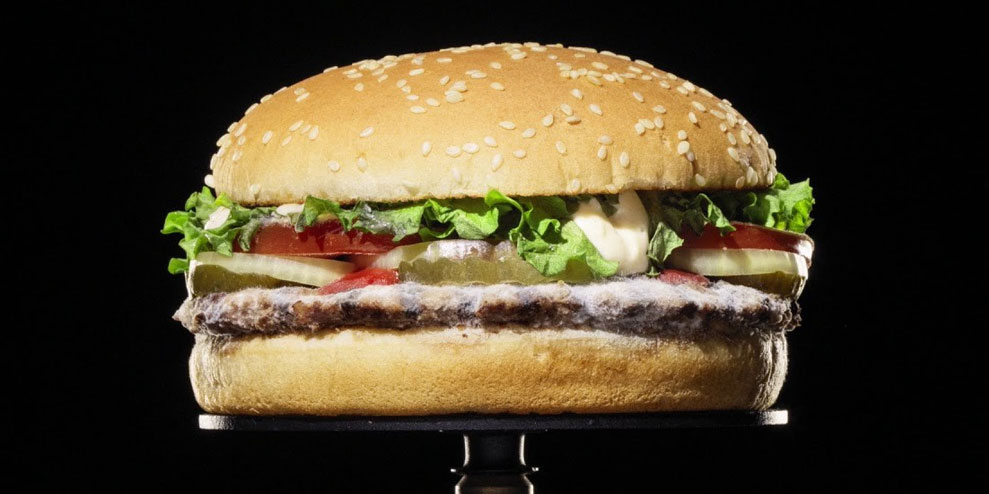Burger King’s unconventional ads have been the talk of the industry for years. But how do they get made? At The Drum’s Can-Do Festival, chief marketing officer Fernando Machado revealed the recipe behind the brand’s creative success.
An expert at ‘burning’ its rivals, whether it’s calling out Kanye West’s taste on Twitter or hiding a McDonald’s Big Mac in every Whopper ad in 2019, time and time again Burger King has proven it’s a lot more fun being the challenger brand.
This year Burger King topped The Drum’s World Creative Rankings as the most awarded brand for 2019, ahead of The New York Times, Nike, Mars, and Ikea respectively.
So what is the brand’s special sauce that helps it stack awards as easily as it stacks burgers?
As one of the headliners of The Drum’s Can-Do festival, global chief marketing officer Fernando Machado sat down to divulge some secrets on how he’s been using creativity as a competitive advantage. Watch Machado’s keynote in full here or enjoy our bite-sized takeaways of his insights below.
1. Counter-intuitive ideas work
When Burger King first introduced mobile payments on the BK app, it was behind a long list of brands that were quicker off the mark. “It was a big deal for us. But not such a big deal for the consumer,” says Machado.
To boost activity on the app, Machado explains that the team took a “detour” from falling into the trap of straightforward transactional ideas.
“We could have done ‘Option A’, a simple promotion, where you get people to use the app by offering free water on the first order. Pretty straightforward, very simple, low friction.”
Instead, the team went for ‘Option B’ – ‘The Whopper Detour.’ It was a counter-intuitive idea. Download the app, drive to rival McDonald’s, order a Whopper on the app for one cent, and return to Burger King to pick it up.
“Rationally speaking, ‘Option A’ is obviously better than ‘Option B. In fact, most of our competitors, including Wendy’s and McDonald’s did that. But we didn’t want to do a straightforward transactional idea that doesn’t differentiate nor build brand love.”
In 48 hours, the app went from number 686 in the charts to number 1.

2. If it looks like an ad, sounds like an ad, smells like an ad… then it’s probably not a good ad.
“The only thing that doesn’t get criticized is the stuff that is irrelevant,” Machado says of Burger King’s mouldy Whopper, which caused a stir back in February.
After making the decision to remove artificial preservatives from its flagship burger, Machado and the team needed to find the right way to shout about it, in true Burger King style.
“We tested out an ordinary didactic ad spot. In a controlled environment. The message was convincing but it was also boring.
Instead, the team took inspiration from vlogger experiments into ‘burgers that don’t mold.’ “Real-food goes bad, we wanted to show the opposite. This really isn’t just an ad campaign.”
The end product was a film documenting a burger decaying over a 34-day period. Machado claims the ad resulted in increased sales of its premium burgers (especially the Whopper), increased perception that Burger King sells high-quality ingredients, was relevant, had over 2 million views on YouTube, and more than 8 billion organic media impressions.
Despite this, the burger initially received a mixed bag of reactions from those in the industry, with people questioning whether it was a shining example of Burger King’s creative genius, or just a stunt designed to win awards.
“No matter what you do, you are going to get criticized. But the results speak for themselves. Meaningful work can move the industry forward. We want to change fast-food for good.”

3. No money, no problem
“A classic type of advertising that our main competitors do is playing with sports celebrities,” Machado states, naming Brazilian football superstar Neymar as a key example.
“Neymar’s a big endorser for a lot of brands. Unfortunately, I can’t rely on opening my wallet and coming up with a truckload of money to hire Neymar, just to pretend that he likes my brand.”
So rather than hiring one of the world’s most famous footballers, Burger King set about creating a campaign that would send its fans ‘football crazy.’
Cue, the ‘Stevenage Challenge’ – a stunt that saw Burger King sponsor a little known football team in the lowest division of the English Football League. Moving things online, it encouraged people to turn the unassuming football team into the biggest club on FIFA 2020, by playing for Stevenage FC in the game or bringing their favourite players into it; incentivising people with free food for completing various challenges.
“Of course there are exceptions to ‘no money, no problem’. Usually, expensive means to be different. But when the idea is powerful, a small spark of paid media can create a huge, rippling explosion.”
–
This article first appeared in www.thedrum.com
Seeking to build and grow your brand using the force of consumer insight, strategic foresight, creative disruption and technology prowess? Talk to us at +971 50 6254340 or mail: engage@groupisd.com or visit www.groupisd.com/story

